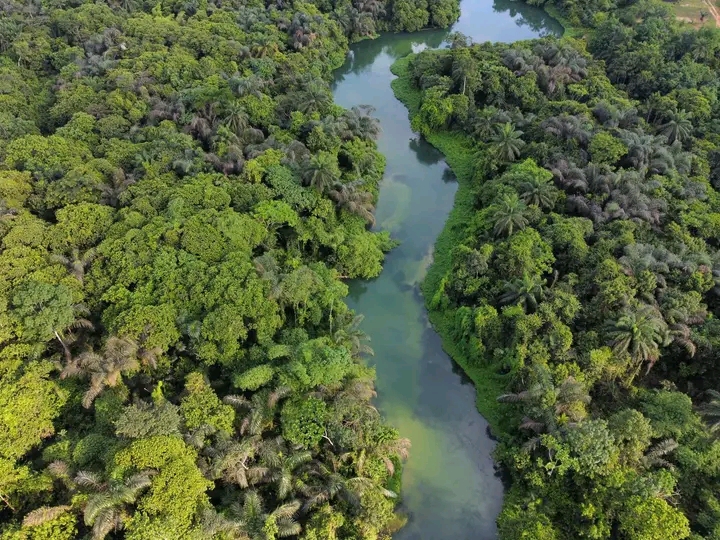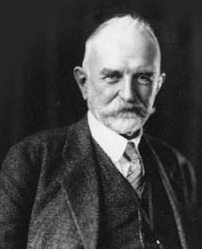|
Abiriba
Abiriba pronounced E`biriba`/is an ancient Enuda kingdom in Abia State, in southeastern Nigeria, traditionally an Igbo speaking region. It is in the Ohafia local government area. History The origin of the Abiriba people is not as speculative as the origin of other Igbos of southeastern Nigeria. Historical evidence supports the fact that Abiriba people have common ancestry with the Bahumono, Yakor, Ekoi tribes of cross river basin and the people of Arochukwu. At Ekoi, constant disputes between the seven families under Ukpaghiri prompted the clan to move to Ena and finally to Akpa. However, the Abiriba people found it difficult to settle in Akpa due to several issues with neighbours. Nevertheless, the death of Ukpaghiri led to the movement of Mbiriba and his group to Usukpam. Despite staying there for many years, they were still never at peace with the neighbours. Abiriba is made up of three main villages: Ameke, Amogudu, Agboji and it operates a monarchical system. It operat ... [...More Info...] [...Related Items...] OR: [Wikipedia] [Google] [Baidu] |
Ebitu Ukiwe
Okoh Ebitu Ukiwe (born 26 October 1940) is a retired Commodore in the Nigerian Navy who served as the de facto Vice President of Nigeria under military head of state General Ibrahim Babangida from 1985 to 1986. Family Ukiwe was born on 26 October 1940, son of Chief Ebitu Ukiwe of Abiriba in Abia State. His father was a traditional ruler in Abiriba and Head of the Old Bende Division Local Government Appeal Court. Naval career Ukiwe joined the Nigerian Navy in 1960 as a cadet (officer), and was commissioned in 1964 with the rank of sub-lieutenant. He defected to the Biafran Armed Forces in 1966. Biafran War During the Nigerian Civil War from 1967 to 1970 he fought on the Biafran side. After the war, in January 1972 he was readmitted to the Navy, one of the few Igbo officers to regain their position. Military career Ukiwe was a member of the Supreme Military Council between 1975 and 1977. General Olusegun Obasanjo appointed him military governor of Niger state in 1977. He wa ... [...More Info...] [...Related Items...] OR: [Wikipedia] [Google] [Baidu] |
Abia State
Abia State ( ig, Ȯha Abia) is a state in the South-East geopolitical zone of Nigeria, it is bordered to the north and northeast by the states of Enugu, and Ebonyi, Imo State to the west, Cross River State to the east, Akwa Ibom State to the southeast, and Rivers State to the south. It takes its name from the acronym for four of the state's most populated regions: Aba, Bende, Isuikwuato, and Afikpo. The state capital is Umuahia while the largest city and commercial centre is Aba. Abia is the 32nd largest in area and 27th most populous with an estimated population of over 3,720,000 as of 2016. Geographically, the state is divided between the Niger Delta swamp forests in the far south and the drier Cross–Niger transition forests with some savanna in the rest of the State. Other important geographical features are the Imo and Aba Rivers which flow along the Abia's western and southern borders, respectively. Modern-day Abia State has been inhabited for years by various eth ... [...More Info...] [...Related Items...] OR: [Wikipedia] [Google] [Baidu] |
Arochukwu
Arochukwu Local Government Area, sometimes referred to as Arochuku or Aro Oke-Igbo, is the third largest local government area in Abia State (after Aba and Umuahia) in southeastern Nigeria and homeland of the Igbo subgroup, Aro people. It is composed of five clans namely Abam, Aro, Ihechiowa, Ututu and Isu. Arochukwu is a principal historic town in Igbo land. It was also one of the cities in the Southern protectorate targeted by the British colonial government. Several historic tourist sites exist in the city. The mystic Ibini Ukpabi shrine, the slave routes and other relics of the slave trade era are frequently visited by tourists. It is also in the food belt of Abia state where most of the staple foods are produced. History Arochukwu was home to a clan of the Ibibios, they founded the early states of Obong Okon Ita and Ibom. Many years passed, migrants that had settled in the area rebelled over the reign of the ruling clan chief in connivance with the younger brother of t ... [...More Info...] [...Related Items...] OR: [Wikipedia] [Google] [Baidu] |
Ohafia
Ohafia is an Igbo town in the Ohafia local government area (LGA) in Abia State, Nigeria. It is an Igbo speaking region. The ancestral capital of Ohafia town is the centrally located village of Elu. Ohafia Local Government Area, is an administrative jurisdiction assigned by the Nigeria Government, which covers the entire Ohafia villages and other towns such as Abiriba and Nkporo, with its Administrative Headquarters at Ebem Ohafia. The ancestors of the Ohafia people were renowned as mighty warriors. This aspect of the Ohafia peoples' history remains fundamental to the Ohafia people's sense of identity. The knitted warrior's cap or "leopard cap" () is well known and is an associated product of Ohafia. The Ohafia warrior tradition is embodied in the performance of '' iri agha''. Ohafia is home to the third largest military base in Nigeria, named Goodluck Jonathan Barracks after Nigeria's former President - Goodluck Jonathan. It houses the headquarters of the newly established 14 Bri ... [...More Info...] [...Related Items...] OR: [Wikipedia] [Google] [Baidu] |
Uche Jombo
Uche Jombo Rodriguez (born December 28, 1979), is a Nigerian actress, screenwriter and film producer. Early life Uche Jombo was born on December 28, 1979, in Abiriba, Abia State, Nigeria. She is a graduate of Mathematics and Statistics from the University of Calabar and Computer Programming from the Federal University of Technology Minna. She was once married to an American named Kenny. Career Uche Jombo ventured into the Nigerian movie industry in 1999 in the movie ''Visa to Hell''. As a screenwriter she has written and co-written several movies some of which include: ''The Celebrity, Games Men Play, Girls in the Hood & A Time to Love.'' Jombo went on to produce films such as ''Nollywood Hustlers, Holding Hope'' and her work ''Damage'' which deals with the issue of domestic violence. Jombo is an ambassador for Globacom. Over 200 Nollywood film(s) added credit to her name, sometimes credited as Uche Jumbo. Her 20 screen play credits of Nollywood classics include ''Games ... [...More Info...] [...Related Items...] OR: [Wikipedia] [Google] [Baidu] |
Southeastern Nigeria
Igboland (Standard ), also known as Southeastern Nigeria (but extends into South-Southern Nigeria), is the indigenous homeland of the Igbo people. It is a cultural and common linguistic region in southern Nigeria. Geographically, it is divided by the lower Niger River into two sections: an eastern (the larger of the two) and a western one. Its population is characterised by the diverse Igbo culture and the speakers of equally diverse Igbo languages. Politically, Igboland is divided into several southern Nigerian states; culturally, it has included several subgroupings, including the Anioma, the Ngwa, the Aro, the Ezza, the Ibeku, the Ohuhu, the Oboro, the Ikwerre, the Ogba, the Omuma, the Ohafia, the Oyigbo, the Mbaise, the Isu and the Ekpeye. Territorial boundaries Igboland is surrounded on all sides by large rivers, and other southern and central Nigeria indigenous tribes, namely Igala, Tiv, Yako, Idoma and Ibibio. In the words of William B. Baikie, "Igbo settlement ... [...More Info...] [...Related Items...] OR: [Wikipedia] [Google] [Baidu] |
Ancient History
Ancient history is a time period from the beginning of writing and recorded human history to as far as late antiquity. The span of recorded history is roughly 5,000 years, beginning with the Sumerian cuneiform script. Ancient history covers all continents inhabited by humans in the period 3000 BCAD 500. The three-age system periodizes ancient history into the Stone Age, the Bronze Age, and the Iron Age, with recorded history generally considered to begin with the Bronze Age. The start and end of the three ages varies between world regions. In many regions the Bronze Age is generally considered to begin a few centuries prior to 3000 BC, while the end of the Iron Age varies from the early first millennium BC in some regions to the late first millennium AD in others. During the time period of ancient history, the world population was already exponentially increasing due to the Neolithic Revolution, which was in full progress. While in 10,000 BC, the world population stood at ... [...More Info...] [...Related Items...] OR: [Wikipedia] [Google] [Baidu] |
Ethnic Groups In Nigeria
Nigeria is one of the most densely populated countries in Africa, with approximately 218.5 million people in an area of , and is also the country with the largest population in Africa and the sixth largest population in the world. Approximately 50% of Nigerians are urban dwellers, with the rate of urbanization being estimated at 4.3%. Nigeria is home to over 250 ethnic groups, with over 500 languages, and the variety of customs, and traditions among them gives the country great cultural diversity. The three largest ethnic groups are the Hausa, 25% of the population; along with the Yoruba, 21%; and Igbo, 18%. The Ijaw, Efik, Ibibio, Annang, and Ogoni constitute other Southern populations. The Tiv, Urhobo-Isoko, Edo and Itsekiri constitute Nigerian's Midwest. Over 1 million people living in Nigeria (0.5% of its total population, or 1 in every 200 people living in Nigeria) are from a continent other than Africa. 800,000 people living in Nigeria are from India, 100,000 people fro ... [...More Info...] [...Related Items...] OR: [Wikipedia] [Google] [Baidu] |
Telecommunications
Telecommunication is the transmission of information by various types of technologies over wire, radio, optical, or other electromagnetic systems. It has its origin in the desire of humans for communication over a distance greater than that feasible with the human voice, but with a similar scale of expediency; thus, slow systems (such as postal mail) are excluded from the field. The transmission media in telecommunication have evolved through numerous stages of technology, from beacons and other visual signals (such as smoke signals, semaphore telegraphs, signal flags, and optical heliographs), to electrical cable and electromagnetic radiation, including light. Such transmission paths are often divided into communication channels, which afford the advantages of multiplexing multiple concurrent communication sessions. ''Telecommunication'' is often used in its plural form. Other examples of pre-modern long-distance communication included audio messages, such as coded drumb ... [...More Info...] [...Related Items...] OR: [Wikipedia] [Google] [Baidu] |
Age Grade
In sociology and anthropology, an age grade or age class is a form of social organization based on age, within a series of such categories, through which individuals pass over the course of their lives. This is in contrast to an age set, to which individuals remain permanently attached as the set itself becomes progressively more senior. The number of age classes, the determining ages and the terminology vary significantly between traditions. Even within a single society, a person may belong to several overlapping grades in different spheres of life, e.g. per year a different school class and yet for several years on end a child, then an adolescent, finally an adult. In tribal societies entry into an age grade – generally gender-separated – is often marked by an initiation rite, which may be the crowning of a long and complex preparation, sometimes in retreat. After a period of some years, during which they often perform certain common activities, alone or under senior guid ... [...More Info...] [...Related Items...] OR: [Wikipedia] [Google] [Baidu] |
Mystical Theology
Mystical theology is the branch of theology in the Christian tradition that explains mystical practices and states, as induced by contemplative practices such as contemplative prayer, called theoria from the Greek for contemplation. Early Christianity Early Alexandrian tradition According to Origen (184/185–253/254AD) and the Alexandrian theology, theoria is the knowledge of God in creation and of sensible things, and thus their conte ... [...More Info...] [...Related Items...] OR: [Wikipedia] [Google] [Baidu] |
Symbolic Interactionism
Symbolic interactionism is a sociological theory that develops from practical considerations and alludes to particular effects of communication and interaction in people to make images and normal implications, for deduction and correspondence with others. According to Macionis, symbolic interactionism is "a framework for building theory that sees society as the product of everyday interactions of individuals". In other words, it is a frame of reference to better understand how individuals interact with one another to create symbolic worlds, and in return, how these worlds shape individual behaviors. It is a framework that helps understand how society is preserved and created through repeated interactions between individuals. The interpretation process that occurs between interactions helps create and recreate meaning. It is the shared understanding and interpretations of meaning that affect the interaction between individuals. Individuals act on the premise of a shared understan ... [...More Info...] [...Related Items...] OR: [Wikipedia] [Google] [Baidu] |





